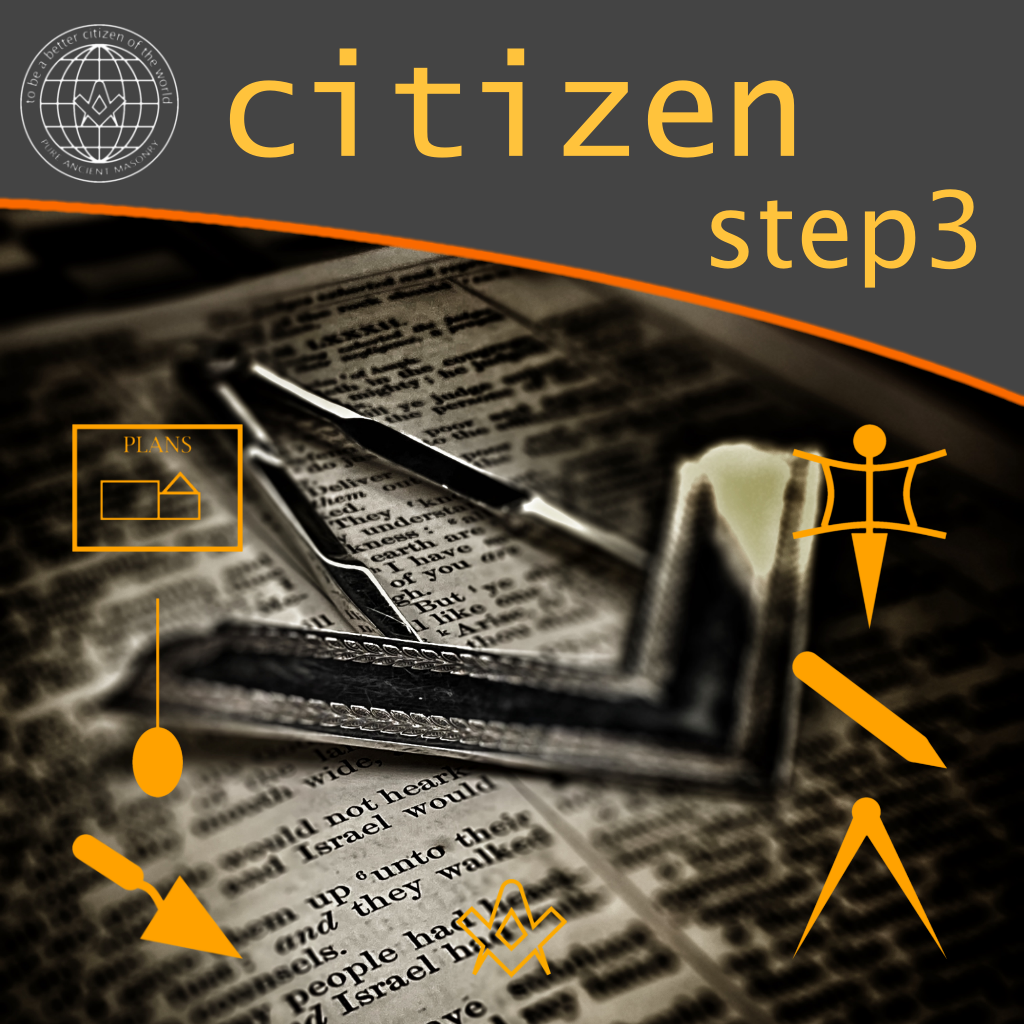A value proposition for Pure Ancient Masonry as defined in terms of Citizenship; the allegories, symbolism and lessons are a blueprint for all Freemasons to be a better citizen of the world.
freemasonry
Freemasonry is a free open source protocol for all backgrounds and cultures.
No one person or institution owns or has the global control over Freemasonry.
freemason
A Freemason is made the instant a person seals their obligation at their initiation ceremony based on the Solomon legend.
grand lodge
A Grand Lodge is a centralised masonic institution that limits its members from practising Freemasonry by means of its Constitutions, Grand Lodge Certificates and Private Lodge Warrants.
The thesis for this article series is that Pure Ancient Masonry consists of no more – nor no less – than Three Degrees and the Royal Arch: as stipulated in the Articles of the Union dated 27 December 1813. ( Freemasonry under the English Constitution)
The author is ‘advocating’ that the value proposition presented to existing members and future candidates for initiation, is that Freemasonry under the English Constitution, should be promoted as a four-part offering, conferred in a Craft lodge opened in four stages.
On a practical basis, the Royal Arch Chapter units would be absorbed back into the Craft lodges. The Craft lodge would either conduct meetings in the first three stages, or would be configured as a Chapter and opened in the fourth stage.
Membership of a Pure Ancient Masonry lodge would automatically include all four stages, which completes membership of Pure Ancient Masonry.
to be a good citizen of the world
Secondly, the value proposition for Pure Ancient Masonry is defined in terms of Citizenship; therefore the allegories, symbolism, and lessons will be a blueprint for all Freemasons to be a better citizen of the world.
The world we live in now, and the world we want to leave to our children.
I acknowledge that many Freemasons achieve esoteric and spiritual fulfilment from their Freemasonry.
This series of articles does not intend to replace or challenge that fulfilment. But, on the contrary, to offer an alternative Masonic fulfilment, through leadership and personal skill sets based on the lessons taught in Pure Ancient Masonry.
This is a series of 4 articles;
Apprentice, Fellowcraft, Master, and Companion
In order for clarity, each step of this series of articles focuses on the working tools and how symbolically these tools can be used as the working tools to become a better citizen of the world, through leadership and personal development skill sets.
- Entered Apprentice Working tools – preparation for citizenship
- Fellowcraft Working tools – communication skills
- Master Mason Working tools – character building & leadership
- Companion Implements of labour – building relationships & trust
Freemasonry offers so much more symbolism, in the charges, lectures, tracing boards etc.
At the present time, it is left open for the student to investigate and incorporate these lessons into their personal path of a daily advancement of Masonic knowledge.
at the end of life, what really matters
is not what we bought, but what we built;
not what we got, but what we shared;
not our competence, but our character;
and not our success, but our significance.
live a life that matters. live a life of love.
– Unknown
Citizenship step 3 – Master & Installed Master
The Master’s Working tools – building character
(under the guidance of the Guilds)

trust takes years to build..
seconds to break..
forever to repair..
The Skirret – that straight undeviating line of conduct, laid down for our pursuit
The Pencil – reminds us that our words and actions are recorded, people will remember your words and actions, both good and bad.
The Compasses – teaches us to keep within our own boundaries, know our limitations, the line of good and evil.
What you see as defective in others, in yourself amend
Freemasonry is a self development process. It is not up to members to correct errors in others, but rather correct their own errors. Sometimes this is a very hard concept to understand.
Members of the lodge who exhibit non-Masonic characteristics are a blessing – they are a lesson.
It is not for us to try and correct them, but learn from them, thank them for the lesson, and correct that defect in our own character.
In the time of the Operative guilds, a fellowcraft having travelled and perfected his skills, is able, under the rules of the guild, to take on an apprentice.
This is how the skills are passed on to the next generation, and thus preserved. In Freemasonry, it is how good citizenship is passed from one generation to another, something that has perpetuated for over 300 years.
The Master is expected to be respected in their wider family and community – that straight line of conduct, laid down for our pursuit.
The Master should be all too aware that his words and actions will be remembered and recorded by others, both good deeds and bad.
His character should not be judged by his mistakes, but by how he fixes them. Sometimes you don’t really know someone until you witness their mistake, then watch how they go about fixing it.
We learn more by our own mistakes and failures than by our successes. A success can be a lucky first attempt, or no more than the last attempt in fixing a string of previous failures.
The Compasses remind the Master to keep within their own boundaries, of expertise as well as their family, and business affairs. It is all too easy for people to express their opinions in areas they have little or no knowledge.
It is correct that everyone is entitled to an opinion. And everyone is entitled to express their opinion. They are just not entitled to express their opinion as facts – something a few fail to understand, especially on social media, which is a 21st century innovation.
Opinions expressed on social media, such as Twitter, Facebook, Instagram, and shared messaging apps like WhatsApp are recorded in perpetuity. These comments are all recorded, and can be used to remind you at any time in the future.

before you make any comment,
let it pass three gates…
is it necessary…
is it kind..
is it truthful…
There are additional lessons a Master Mason is taught in this third step. These are covered in the ritual, which we will briefly touch on.
1. Refection of one’s life so far. The Master Mason is invited to reflect on death, his own mortality. What has he achieved to date, then what does he want to accomplish during the rest of his mortal existence. What is left on his bucket list.
Look in the mirror, and ask your self each morning: are my plans for the day taking me forward to achieving my goals? Am I looking forward to the day? If you answer ‘no’, too many times in a row, maybe it is time to revaluate the process, not your plans.
2. A lesson of honour – standing by his commitments, such as Hiram, who sacrificed his own life to honour his obligation. Likewise the lessons taught by the ruffians, who tried to take the shortcut to knowledge and learning, which failed with devastating consequences. There is no shortcut to success.
3. A Master Mason has the opportunity to become the Master of his lodge – the first rung on the management ladder – the leader of the tribe.
To help him accomplish this additional role, he is presented with three additional working tools, which show leadership skills.
II
The Installed Master’s Working Tools – leadership skills
(under the guidance of the Guilds)
It has been an established custom among Freemasons, for each lodge, at a stated period, each year, to select from its Wardens and Past Wardens, a skilled craftsman to preside over them as Master.

treat others the way you want to be treated..
talk to others the way you want to be talked to..
everyone deserves respect..
The character qualification to be selected and elected a leader of the lodge, a Master should be considered by the members as true and trusted, easy of address, steady and firm in principle, well skilled in the noble arts, willing and able to undertake the management of the work.
In the age of the guilds, a skilled craftsman would be appointed to lead a group of fellowcrafts, master masons and apprentices on a specific area of the structure – they may be known as a leading hand or overseer.
Not so often now, but an Installed Master would be presented with the working tools, which will help him in developing his leadership skills.
Working Tools – Leadership Skills – becoming Master of the lodge, management / leadership skills
The Plan of Works – making plans through critical thinking, projections and consensus of the members.
The Plumb Line – leadership integrity, not to overload members of the team with too many tasks, and not pressuring others to do things you would not do yourself, morally or ethically.
The Trowel – the management tool; to smooth out conflicts and quarrels between members in order to keep harmony in the lodge.
Lower management, leading a tribe
Often having to manage the hand you are dealt, (there is a narrow option to change a few people). Leadership skills, mentoring, decision making, building confidence, in yourself and your team
How often do individuals get the opportunity to be a team leader, if only for a year?
This is a unique feature of Freemasonry as a learning strategy to be a better citizen of the world.
A Freemason is given, in some cases, only a once in a life time opportunity, to practice leadership skills for real, first hand, in a supportive environment.
The leader learns that he needs to rely on the support of his team to be successful.
In Freemasonry that will be the team of Officers in progression, who assist in the ritual in open lodge.
Plus, the administration team in the general running of the lodge. The Worshipful Master of a lodge soon learns that to be successful, he needs the support and cooperation of all the members.
There is an expectation by the members, that the Worshipful Master, with the assistance of other officers, will produce a work plan, for open meetings within the lodge, and any social events outside the lodge. Plan the work, and work the plan.
The Worshipful Master is also duty bound not to put any member under pressure to undertake a task, that they would not undertake themselves.
Some entry-level managers, either due to pressure from above, or though lack of experience, can be found bullying members of their team. It is a cycle an inexperienced manager can find themselves trapped in.
The Worshipful Master is also expected to be the arbitrator, to resolve situations of conflict between members; to hold the scales of justice with an equipoise.
Having served the year as Worshipful Master, the Master is automatically appointed Immediate Past Master, the only Office in the lodge a Mason has by right.
This Office is an introduction to state craftsmanship which is to follow in step four.
The principle task of the Immediate Past Master, is to council the Worshipful Master in the management of the lodge – to help guide him through the ritual, that light hand on the back which transmits confidence, that all is well.
The Immediate Past Master’s advice is subtle and subdued, so the Worshipful Master remains in control, and appears to be in control, which inspires a confidence in the members in the choice they have made.
In terms of the Guild, a member would served his Apprenticeship, then become a Journeyman or Craftsman, then at a later point qualified as a Master, had schooled his own apprentice, and may have lead a team of workers, is ready to offer council to the guild when called upon.
With some years of experience, he might become a ruler in the Guild, or someone others turn to for counsel. He becomes a states-craftsman.
He is invited to take a seat with the Princes and rulers of the craft.
Next month we look at the working tools, or the implements of labour of a Royal Arch Companion. The Royal Arch is the fourth step in English Freemasonry, which is unique among other craft Grand Lodges.
This came about at the union of the two English Grand Lodges in 1813.
In the fourth step we use the working tools of a Royal Arch Companion in terms of building reputation, a states-craftsman. This is where all the working tools in the previous three steps are second nature.
Article by: Nicholas J Broadway

Nicholas was initiated into Freemasonry in 1989 in Stonewell Lodge No. 9137, Essex England (UGLE) and was Master in 1995, 2011 and 2016. He also joined other UGLE craft Lodges and is a PZ in the Royal Arch Chapter.
He acquired the title of The Square Magazine in January 2020 and oversees the technical running of the digital publication.

SQ Leadership & Personal Development Books
Selected Books on Leadership and Personal Development available at Amazon
more….
Recent Articles: To be a Better Citizen of the World
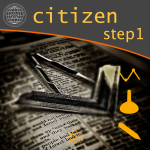 To be a Better Citizen of the World; Step 1 A value proposition for Pure Ancient Masonry as defined in terms of Citizenship; the allegories, symbolism and lessons are a blueprint for all Freemasons to be a better citizen of the world. |
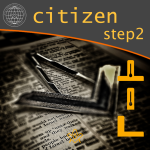 To be a Better Citizen of the World; Step 2 A value proposition for Pure Ancient Masonry as defined in terms of Citizenship; the allegories, symbolism and lessons are a blueprint for all Freemasons to be a better citizen of the world. |
 To be a Better Citizen of the World; Step 3 A value proposition for Pure Ancient Masonry as defined in terms of Citizenship; the allegories, symbolism and lessons are a blueprint for all Freemasons to be a better citizen of the world. |
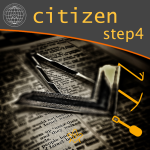 To be a Better Citizen of the World: Step 4 A value proposition for Pure Ancient Masonry as defined in terms of Citizenship; the allegories, symbolism and lessons are a blueprint for all Freemasons to be a better citizen of the world. |
Recent Articles: membership
 A Rose by any other Name may not be the same Explore the profound distinctions between conferred and transmitted Masonic degrees with Bro. Scott Wisdahl. Delve into how presentation quality, personal impact, and setting shape these rituals, and consider the potential for digital adaptations in modern Masonic practices. Join the discussion on enhancing the Masonic journey and preserving its essence. |
 Progression through the Degrees; a Rite or a Privilege? Exploring the layered journey of Freemasonry, Matt DA Fletcher probes the essence of progression—whether it's a mere rite or a privileged path. Delve into a nuanced perspective where every degree is not just a milestone but a fraction of a grander continuum. |
 Quantity vs Quality within the world of Freemasonry Dive into the compelling debate of quantity vs quality within the world of Freemasonry. Discover the transformative focus on attracting members aligned with the institution's values, promising not only growth but quality growth. High-value individuals assure sustainable development with their commitment to serving the brotherhood. |
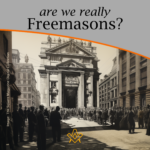 Maybe Freemasonry has opened its doors too wide. Perhaps some have not understood that the survival of Freemasonry in order to achieve its sublime purpose lies not in the number of members it has, but in their quality. Maybe we need less members and more Freemasons. Less men in Freemasonry and more Freemasonry in men. |
 What is ritual and why is it important? P1 Delve into the profound world of Freemasonry rituals and their significance. This insightful piece unravels the underlying importance of rituals, their impact on participants, and the transformative power they hold. Uncover why these centuries-old traditions remain integral to Masonic practice today. |
 Could Freemasonry be helpful for young men? Unravel the Masonic Brotherhood: Could Freemasonry be the antidote to modernity's challenges for young men? Dive in as we explore the Masonic world, its principles, camaraderie, and how its traditional rituals could help forge stronger identities in an increasingly complex world. |
 Discover the remarkable benefits of Lodge Meetings on your well-being. From fostering connections to combating stress, learn how these male-oriented gatherings offer an antidote to anger, hunger, isolation, and exhaustion. Dive into the power of shared experiences, understanding, and camaraderie. Your key to improved mental health awaits inside. |
 Tutorial for a Worshipful Master Unlock the Secrets to Leadership Mastery in our Worshipful Master's Tutorial! Brother Antonio Biella shares step-by-step guidance for Masonic Lodge leaders on honing their roles, duties, and future vision. Discover how to drive growth and engagement in your Lodge, setting ambitious goals and inspiring member participation. |
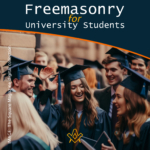 Freemasonry for University Students What are social skillset challenges facing students when they graduate from university ? |
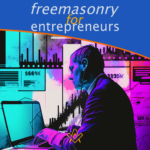 How the Core Values of Freemasonry; Brotherly Love, Relief and Truth Can Be Applied to Improve Productivity For Entrepreneurs |
 Why I became a Freemason: a personal journey of self-improvement Salik Tariq shares his reasons for becoming a Freemason – a journey of self-improvement, finding a community, and personal growth. |
 Freemasonry: Coming out of the Cloisters This paper examines the fundamental tensions on the lines of religion, gender and political ideology that exist in some jurisdictions of Freemasonry. It is on the first of these, religion, on which he makes an initial and exploratory focus. - by Gerald Reilly |
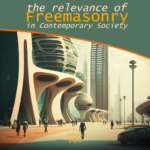 The Relevance of Freemasonry in Contemporary Society The role of Freemasonry in contemporary society is an indispensable one. Despite the challenges and misconceptions it faces, the organization remains steadfast in its humanitarian pursuits and commitment to personal growth and self-betterment. Through its efforts to evolve and adapt to the changing needs of its members and the world, Freemasonry continues to be a vital force in shaping a better future for all. |
 Has Freemasonry managed to revive and thrive after the darkness of the Pandemic? Robert Lomas gives us some (promising) insights. |
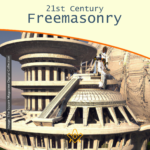 21st Century Freemasonry – a Sign of the Times? A recent article in The Times of London highlighted the dilemma 21st Freemasonry is facing. In this article one Master Mason shares his views of the strengths, and the challenges of modern Masonry. |
 A concept that is both based on our Freemasonic rituals and what we understand as teamwork. This article by Chris Batty examines why teamwork in the lodge is the network that binds us. |
 Lebanese Freemasonry has been both witness to and sometimes participants in turbulent events and forces, which shaped and influenced their world. |
 Is a Masonic Tradition Necessary? Dealing with Masonic tradition is a complex subject that requires careful analysis in order to reach a balanced point on the best etymological definition and the set of discourses and practices, which often end up being presented as such, without, however, presenting bases that support them, often serving only as a discourse that restricts and controls the masses. Fernando Rodrigues de Souza debates this complex subject. |
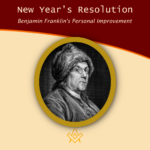 New Year's Resolution with Benjamin Franklin's Personal Improvement Are you ready for a new year's resolution challenge ? To accomplish his life’s goals, at 25 ( around 290 years ago ), Benjamin Franklin developed and committed himself to a personal improvement program that consisted of 13 virtues. You are invited to join me in practicing his daily routine for 2023. |
 The Alberta Masonic Higher Education Bursary Fund is to help the next generation of Albertans, our children and grandchildren, to obtain the education they need to lead successful lives and contribute to the welfare of mankind. As you can see from this little lesson of our history, education is truly a Masonic obligation. |
 To be a Better Citizen of the World: Step 4 A value proposition for Pure Ancient Masonry as defined in terms of Citizenship; the allegories, symbolism and lessons are a blueprint for all Freemasons to be a better citizen of the world. |
 To be a Better Citizen of the World; Step 3 A value proposition for Pure Ancient Masonry as defined in terms of Citizenship; the allegories, symbolism and lessons are a blueprint for all Freemasons to be a better citizen of the world. |
 In connection with recent article about Freemasonry in the metaverse, we look at how an Egregore applies to Freemasonry in a digital world |
 To be a Better Citizen of the World; Step 2 A value proposition for Pure Ancient Masonry as defined in terms of Citizenship; the allegories, symbolism and lessons are a blueprint for all Freemasons to be a better citizen of the world. |
 There are many brotherhoods in the world, and Freemasonry is one of the most significant and successful of them all. This article will be the focus two questions: the importance of brotherhood ? and is there room for improvement in Freemasonry? |
 Intergenerational relations in Masonry: challenges and possibilities Backed with scientific research, Professor Luiz Neto and Professor Alexandre Braune investigate the Intergenerational relations in Freemasonry and explores the challenges and opportunities. |
 To be a Better Citizen of the World; Step 1 A value proposition for Pure Ancient Masonry as defined in terms of Citizenship; the allegories, symbolism and lessons are a blueprint for all Freemasons to be a better citizen of the world. |
 The Masonic Temple is a platform where both Freemasons and non-Masons, enthusiasts of real art and spiritual growth, connect to the new world of the metaverse. A Freemasonry in the metaverse project, based regular freemasonry principles. |
 Opportunity to fix the Sussex fudge Is there a value proposition for members, that under English Constitution Freemasonry, we have a 4 part offering; Entered Apprentice, Fellowcraft , Master Mason and Companion, conducted in a single craft lodge ? |
 Value Proposition of Freemasonry In addressing declining lodge membership and lack of attendance, we need to assess the value it offers to members. What is value, and what does it mean to you? |
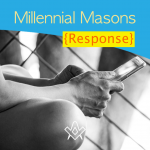 What is a 'Millennial' and what do they want from Freemasonry? You'll be surprised at the answers. |
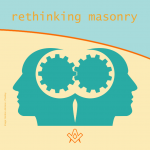 Let us help answer a fundamental question, from a confused newly raised brother asking “What does it all mean and where do I go from here?” |
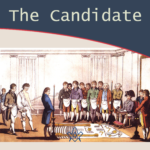 Written in 1930, much of the advice is still relevant today - although some may provoke further thought or debate! |
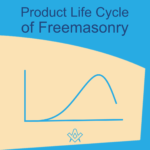 Product Life Cycle of Freemasonry An inconvenient truth about the product life cycle of Freemasonry |
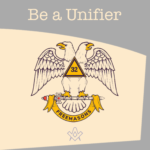 Freemasonry is local. This is where we need to start. We start with our Facebook friends, our neighbours, our colleagues, our lodges… |
 Freemasonry in the time of pandemic The Rule of Six. Localised lockdowns. Second wave? What do we do now?! The answer is simple - engage with members, promote Masonic education and get thinking outside the lodge. |
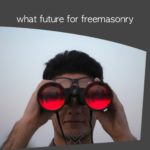 The current functioning of the Masonic movement has some positive aspects and others that are blatantly backward and counterproductive. |
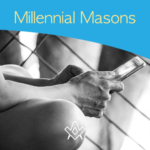 What is a 'Millennial' and what do they want from Freemasonry? You'll be surprised at the answers. |
 How to improve your Lodge Membership Marketing Program. |
 The Anti-Social Impact of Social Media The 'dark side' of social media and its negative effect on our mental health |
 If Freemasonry cannot meet, is this an opportunity to make a change to how we do things? |
 Has your lodge accepted an unknown candidate from the internet? Third in a three-part series looking at the process to accepting candidates via the internet |
 Is the brother of a brother a brother ? Rights to visit - recognition and regularity re-evaluated. |
 The second article in the Unknown Candidate series - Outlining the social media marketing process to attract the unknown candidate to make that first enquiry |
 Ask a random Freemason the purpose of Freemasonry and the likely response will be to “make good men, better”. Research undertaken by James Justin Davis Pennsylvania Academy of Masonic Knowledge. |
 Has your lodge accepted an unknown candidate from the internet? First in a three-part series looking at the process to accepting candidates via the internet |
 Mental Health - Raising its awareness and how we as Freemasons throughout the entire UK can help our fellow brethren and their families when they need it. |
 Share one thought why freemasonry is relevant today - Open question posted on Facebook with a very wide range of responses from Brethren across the globe |
 The Tipping Point of Freemasonry Why do brothers lose interest in Freemasonry and what can we do to get that spark back? At what moment did our own thoughts begin to waver? |
masonic knowledge
to be a better citizen of the world
share the square with two brothers

click image to open email app on mobile device
Tubal Cain
Masonic Apron NFT
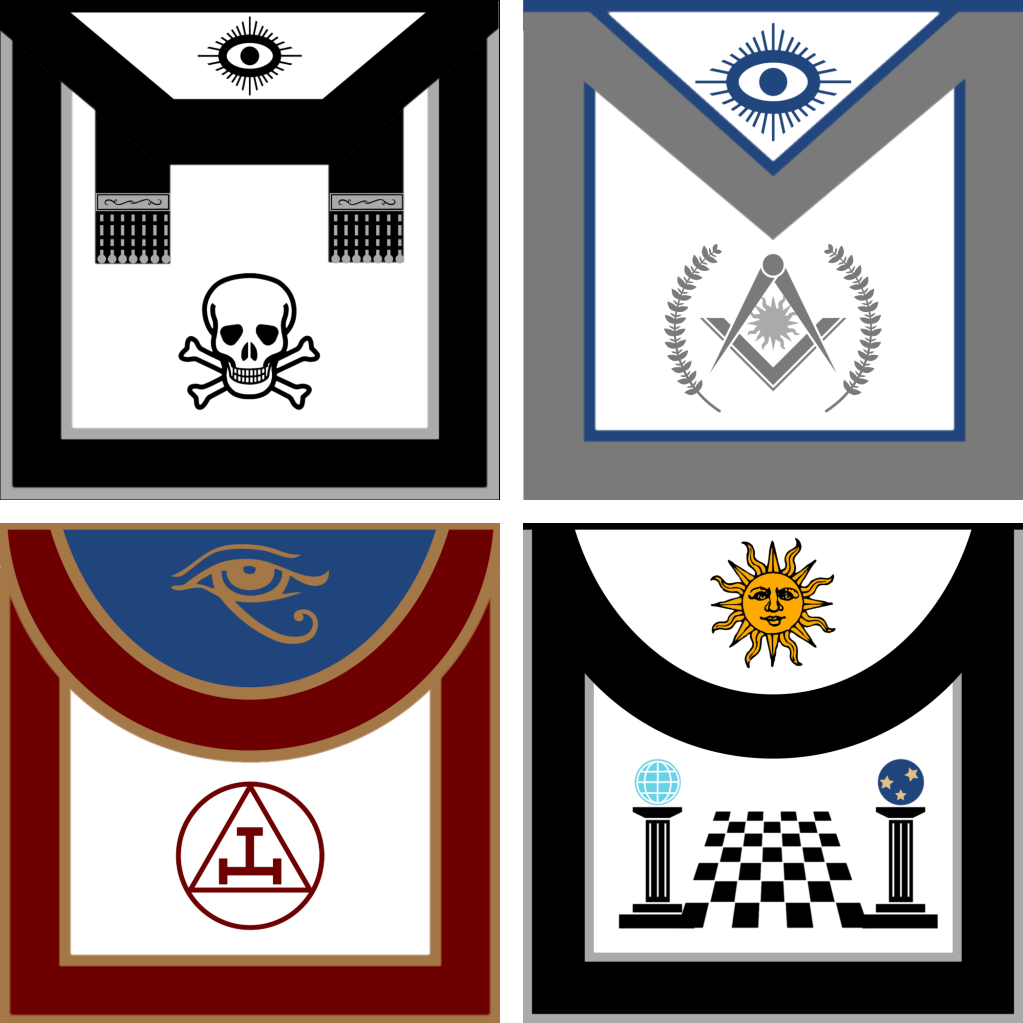


Each NFT includes the JPEG image plus a full size masonic apron and shipping worldwide
